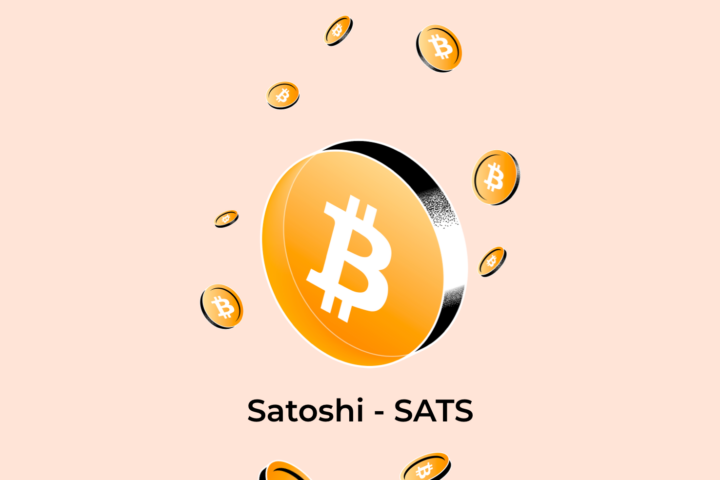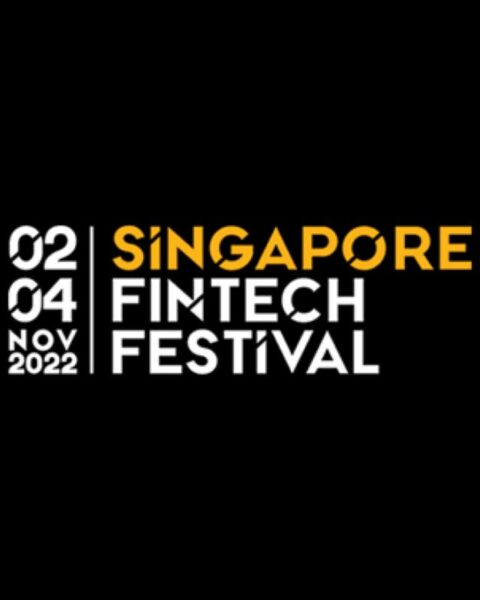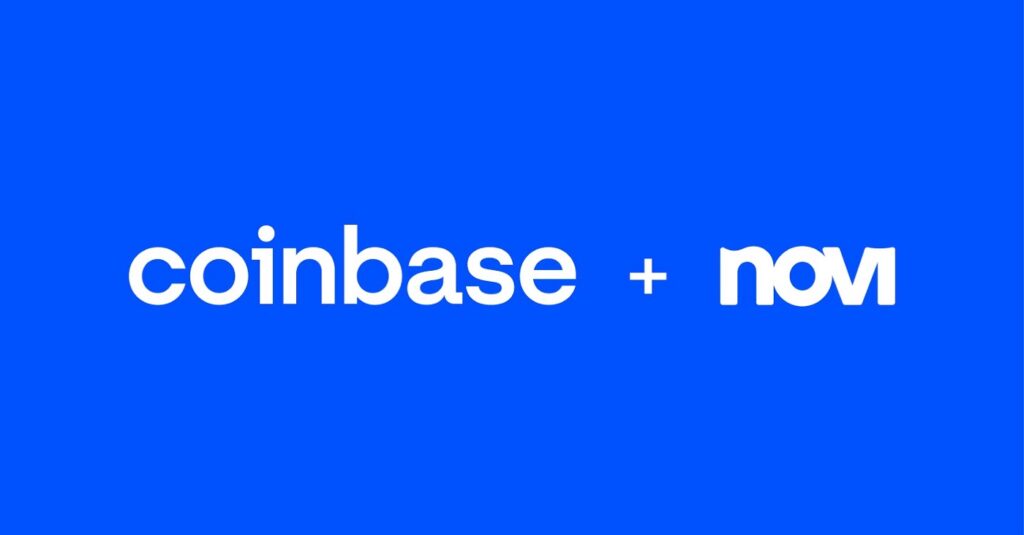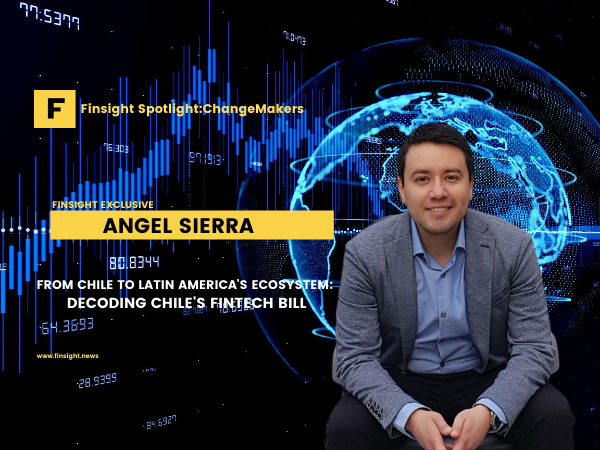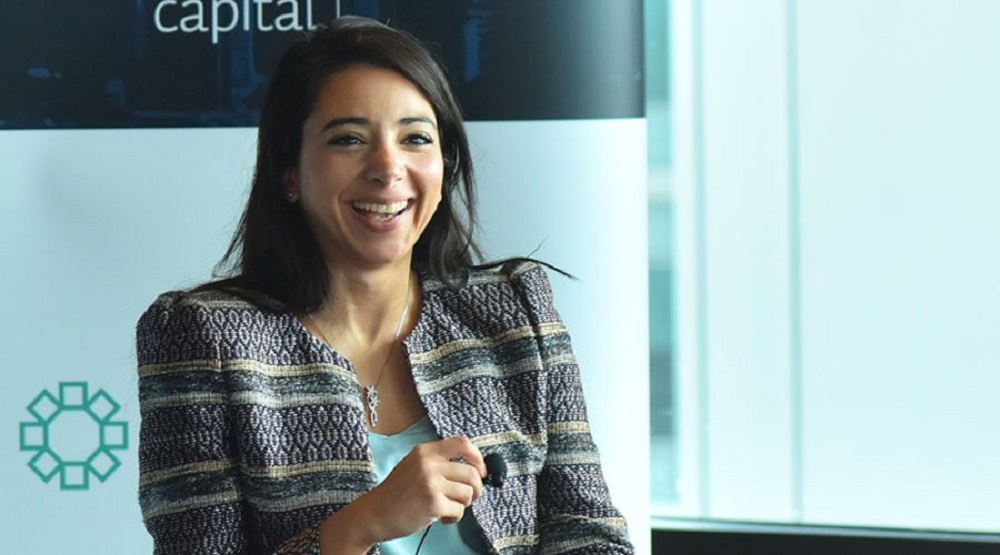Switching to the Satoshi standard and Lightning Network connectivity makes Bitcoin more tangible and easy to use. AAX has made the first move in the crypto space, already providing BTC to SAT
Coinbase to power crypto custody for Facebook’s Novi
Facebook has chosen Coinbase as its custody partner for its pilot of Novi, a new digital wallet that enables people to send and receive money abroad instantly, securely, and with no fees.
For the pilot, Coinbase is supporting Novi via Coinbase Custody, which keeps user funds secure with our proprietary, fully segregated cold storage capability for managing private keys.
Novi users who can participate in the pilot can acquire Pax Dollar (USDP) through their Novi account, which Novi will hold on deposit with Coinbase Custody. Novi users will then be able to transfer USDP between each other instantaneously.
Novi users’ funds will be held within Coinbase Custody Trust Company, a qualified custodian and a New York limited purpose trust company. Coinbase Custody Trust Company is regulated by the New York Department of Financial Services and is a fiduciary under New York state banking law. Novi users also benefit from Coinbase Custody’s leading insurance program, which includes a $320 million commercial crime policy.
Coinbase Custody is a leading crypto-native platform and custodian that securely manages $180 billion (as of 6/30/21) of crypto assets on its platform. Over the past nine years, Coinbase has developed deep expertise in secure and scalable crypto infrastructure, which we initially built to power our own first-party applications. We then productized this infrastructure and now supply our secure infrastructure solutions to the rest of the market. This includes our leading custodial solutions, multi-venue algorithmic trade execution, staking support, financing, defi access, compliance, and market and on-chain data analytics.
We believe that in the future, every company will be a crypto company, including fintech platforms, banks, social media, gaming companies, and consumer brands. Our goal is to arm them with the best tools possible so their own users have a first-class experience and participate in the crypto-economy.
Coinhako Launches ‘Privé’, a Trusted Digital Assets Trading Platform for Institutions and HNWIs
Singapore-headquartered cryptocurrency trading platform Coinhako has launched ‘Coinhako Privé’, digital assets platform for High-Net-Worth-Individuals (HNWIs) and institutions.
Coinhako Privé members will enjoy access to institutional-grade digital asset services and white-glove services, such as a dedicated relationship manager, personalised support from a team of industry experts, and zero trading fees. While providing competitive real-time pricing and flexible trading sizes, Privé also supports instant Request for Quotes (RFQs), 24/7 settlement processes, and 24/7 access to trading history.
Boosting customer confidence in crypto trading, Privé is outfitted with the best-in-class security solutions in the digital assets and financial services space, to ensure that assets are always safe. Privé clients will also gain access to API trading which they can use to execute high-performance cryptocurrency trades.
“Privé was born to offer a detailed suite of services for institutions and HNWIs, enabling them to better manage their digital assets on a trusted platform. Other exchanges in Singapore have focused on retail solutions; we saw the opportunity to provide services for institutional clients. Not only that, institutions and HNWIs in Singapore are very interested to trade in crypto, but many lack the understanding to do so. We have developed Coinhako Privé to provide a more personalised hi-touch service to best serve this customer base,” said Yusho Liu, Co-founder & CEO, Coinhako.
“Security is a top priority. We are regularly audited by 3rd party security firms, utilize multi-signature to authorize transactions and hold a significant amount of assets offline. We want to ensure that our clients have peace of mind as they come on board with us,” added Yusho.
The process of signing up to Privé also ensures platform security. Current Coinhako users, who are already verified and have completed their Know Your Customer (KYC) process, will need to submit additional financial documents for further screening. If they are not Coinhako users, they will first need to sign up for a Coinhako account and complete the regular KYC before they go through the rest of the screening process to join Privé. A relationship manager will be in touch with the applicants throughout the onboarding process.
Potential Privé members will need to qualify as accredited investors[1] and have a minimum of SGD300,000 in annual income or two million in net personal assets, or one million in net financial assets. Privé is also looking to serve institutions that invest SGD100,000 or above in annual crypto trading volume.
Coinhako will evaluate client portfolios and overall outlook, offering Privé membership to those interested in scaling up their trading volumes as they become more comfortable with crypto.
Institutions offering crypto services to their own clients will easily be able to manage client settlements and trade requests alongside their own in a single location, add multiple bank accounts to handle settlements in different currencies and manage crypto addresses for different tokens.
Coinhako has seen a 1000 per cent increase in trading volume for the first eight months of 2021, with over 300,000 registered users in Singapore and an average of 150,000 monthly active users based on year-to-date data. It projects that its trading volume could cross the ten billion-dollar mark by the end of the year, driven by growing interest for cryptocurrencies in Singapore and the rest of Southeast Asia. Currently, Coinhako offers a wide selection of over 40 digital assets.
Privé is another initiative by Coinhako to instil crypto confidence in a wider demographic through channels that appeal to institutional and individual interests.
Made in USA: US becomes largest bitcoin mining centre after China crackdown
The United States has overtaken China to account for the largest share of the world’s bitcoin mining, data published on Wednesday by Britain’s Cambridge Centre for Alternative Finance showed.
The figures demonstrate the impact of a crackdown on bitcoin trading and mining launched by China’s State Council, or cabinet, in late May, which devastated the industry and caused miners to shut up shop or move overseas.
China’s share of the power of computers connected to the global bitcoin network, known as the “hash rate”, had fallen to zero by July from 44% in May, and as much as 75% in 2019, the data showed.
Miners elsewhere have taken up the slack, with mining rig manufacturers shifting their attention to North America and Central Asia and larger Chinese miners moving as well, though this process is fraught with logistical difficulties.
As a result, the United States now accounts for the largest share of mining, some 35.4% of the global hash rate as of the end of August, followed by Kazakhstan and Russia, the data showed.
Bitcoin is created or “mined” by high-powered computers, usually at data centres in different parts of the world, which compete to solve complex mathematical puzzles in a process that makes intensive use of electricity.
Angel Sierra – Decoding Chile’s Fintech Bill
LiveFinsight.news contributor Richie Santosdiaz hosts an exclusive interview with Angel Sierra, President Fintech Ibero-America and Co-Founder & Executive Director of Fintech Chile to decode the fintech bill in Chile and the legislative impact on the LatAm fintech ecosystem.
According to the Finsight.news research team, the fintech ecosystem in Latin America is booming: nearly 70% of the Latin American population is unbanked. However, the use of smartphones is drastically increasing and it’s predicted that 90% of all Internet connections in Latin America will come from mobile devices by 2022, leaving the door wide open for digital fintech providers. These are just a few of the stats that make Latin America ripe for fintech innovation.
The bill that promotes financial inclusion and competition through innovation and technology in the provision of financial services, was submitted to the Chamber of Deputies on September 3, 2021, and is currently with the Treasury Commission in its first legislative stage.
Chilean’s Fintech Bill focuses on boosting the benefits that technology-based financial services can generate and aims to address potential risks and challenges while hopes to achieve a balance between promoting financial innovation, competition and other public policy goals on financial stability and financial inclusion.
The bill is presented as a framework bill, which grants the Financial Market Commission (CMF) a clear mandate for the regulation and supervision of these new activities, in observance of the legally established principles and criteria.
Watch now the exclusive interview with Angel Sierra, Co-Founder and Executive Director of Fintech Chile, which analyzes in detail the importance of the fintech bill in the regional and local context.
Angel Sierra is the co-founder and Executive Director of FinteChile (Chile Fintech Association), and the Former co-founder of Colombia Fintech (Colombia Fintech Association). His qualifications include Industrial Engineering, Pontificia Universidad Javeriana, Colombia MBA, and Georg Simon Ohm University, Germany.
UniCredit and JP Morgan employ Swift Go for payments between Europe and US
Utilising the banking cooperative’s low value remittance solution, UniCredit and JP Morgan have partnered to allow small businesses and consumers send fast and secure near real-time cross border payments at a competitive price with Swift Go.
Swift Go enables banks to provide their end customers with transparent payments services with upfront visibility on processing times and costs, tighter service level agreements between institutions and pre-validation of data.
With the promise of payments being credited on the same day and free of charge for the beneficiary, UniCredit customers will be able to leverage both Swift Go and JP Morgan’s PayDirect solution to make payments of up to $10,000 to any JP Morgan Chase branch in the US.
This is Swift Go’s first move in the US and expansion is also expected to occur to other UniCredit clients across Europe in due course.
On the partnership, Raphael Barisaac, UniCredit’s global head of cash management, said: “UniCredit has always been a staunch supporter of innovations within the payments sector that deliver excellent outcomes for end-customers and our cooperation with J.P. Morgan represents a clear step in this direction. As ever, we strive to support our clients with the best possible solutions and expect this news to be positively-received by our customers that carry out business operations in the United States.”
Gayathri Vasudev, head of global clearing product at JP Morgan added: “J.P. Morgan is committed to innovation in the global payments industry, so we’re pleased that UniCredit is leveraging our new PayDirect solution and SWIFT Go to provide payment services to its business and consumer clients. Through PayDirect and SWIFT Go, UniCredit will be delivering payments into the US via US low-value clearing network (ACH), providing a great end-to-end experience and transparency of fee, while delivering full value of payments.
Seven global banks – BBVA; Bank of New York Mellon; DNB; MYBank; Sberbank; Société Générale, and UniCredit – which collectively handle 33 million low-value cross-border payments per year, are already live with the service.
MoneyGram Announces Innovative Partnership with the Stellar Development Foundation to Utilize Blockchain Technology
MoneyGram International, Inc. (NASDAQ: MGI), the global leader in the evolution of digital P2P payments, announced a partnership with the Stellar Development Foundation, a non-profit organization that supports the development and growth of Stellar, an open-source public blockchain that allows money to be tokenized and transferred anywhere in the world. MoneyGram’s network, integrated with the Stellar blockchain and facilitated through Circle‘s USD Coin (USDC), will enable cash funding and payout in local currency for consumers using USDC, as well as near-instant backend settlement capabilities.
For consumers, the partnership will provide the ability to seamlessly convert USDC to cash, or cash to USDC. This increases the utility and liquidity of digital assets while also enabling more consumers to participate in the digital economy. The impact of this partnership is expected to grow as more wallets and companies join the Stellar network.
This partnership also revolutionizes the settlement process. For the first time, settlement with MoneyGram will occur in near-real-time using Circle’s USDC, the world’s fastest growing dollar digital currency. This enables an accelerated collection of funds, improving efficiency and reducing risk.
“At MoneyGram, one of our top strategic priorities is to pioneer cross-border payment innovation and blockchain-enabled settlement, and we’re thrilled to now work with the Stellar Development Foundation to further our efforts,” said Alex Holmes, MoneyGram Chairman and CEO. “As crypto and digital currencies rise in prominence, we’re especially optimistic about the potential of stablecoins as a method to streamline cross-border payments. Given our expertise in global payments, blockchain, and compliance, we are extremely well-positioned to continue to be the leader in building bridges to connect digital currencies with local fiat currencies.”
MoneyGram was the first money transfer company to utilize blockchain technology as part of its foreign exchange trading and has since launched several innovative partnerships that provide broad consumer access to digital currencies. MoneyGram continues to invest in initiatives related to digital currencies, and this latest integration with Stellar is the most recent in MoneyGram’s journey to lead the evolution of digital peer-to-peer payments.
“This partnership is a shining example of how blockchain technology and stablecoins bring new opportunities to global customers and enhance the existing financial system,” said Denelle Dixon, CEO and Executive Director of the Stellar Development Foundation. “Thanks to the reach of MoneyGram’s services and the speed and low cost of transactions on Stellar, a new segment of cash users will be able to convert their cash into and out of USDC, giving them access to fast and affordable digital asset services that may have previously been out of reach. We’re pleased to team up with MoneyGram to drive toward our mission of creating more equitable financial access.”
“The launch of this partnership speaks to the power of digital currencies like USDC to create fast, secure, and seamless settlement for the digital economy,” added Jeremy Allaire, Co-founder, Chief Executive Officer, and Chairman of Circle. “Together, we’re at the forefront of innovation, demonstrating how we can reimagine financial services that benefit and better serve global users.”
United Texas Bank will serve as a settlement bank between Circle and MoneyGram. Scott N. Beck, Director of United Texas Bank, added, “We are pleased to play an integral part in completing the settlement process by working on this first of a kind direct USDC to USD settlement within a bank regulatory framework.”
The partnership is scheduled to go live in select markets in 2021, with further international rollout planned in 2022.
Protocol Labs Joins the Crypto Climate Accord to Drive Decarbonization of Crypto Networks
Protocol Labs, an open-source R&D lab that builds protocols, tools, and services to radically improve the internet including Filecoin and IPFS, has joined the Crypto Climate Accord (CCA). Alongside ConsenSys, the Web3 Foundation, and CoinShares, among others, Protocol Labs joins over 170 leading organizations helping advise, develop, and scale solutions in support of the CCA.
Aligned in the mission to transition the blockchain industry to renewable energy, as an official supporter, Protocol Labs is committing to driving the development of Web3 initiatives toward net-zero emissions. Launched in 2021 and co-convened by nonprofits by Energy Web, the Alliance for Innovative Regulation, and RMI, the Crypto Climate Accord was inspired by the Paris Climate Agreement and serves as a private sector-led initiative to accelerate the development and adoption of open-source decentralized solutions and good practices that decarbonize the crypto industry.
As a new member of the CCA, Protocol Labs collaborated with Energy Web on the first showcase of an open-source solution to decarbonize Filecoin, the world’s largest decentralized storage network. Building an open-source solution for renewable energy purchasing by crypto miners, the showcase saw six Filecoin storage providers purchase verified renewable energy from 3Degrees using Energy Web Zero, a renewable energy search engine. Integrating renewable energy data from Energy Web Zero into the Filrep reputation system allows clients to factor renewables into their decision when choosing a storage provider. Each record on Filrep points to averification page in Energy Web Zero, showing where the energy was produced,
documenting the renewable source, and providing an attestation certificate proving ownership of the corresponding renewable energy credits. In other words, this solution makes it easy for Filecoin storage providers to decarbonize and prove their green credentials
to boost their reputation.
Angie Maguire, Head of Growth and Marketing at Protocol Labs, said, “Numerous
projects in the ecosystem are already seeking to address the environmental impact of the blockchain space, choosing Filecoin as the best place to build projects for the NFT economy, digital identity, decentralized finance, and data preservation.
We are laser-focused on developing solutions to support and encourage use of renewable energy sources among storage providers and set the standard on energy consumption transparency, so clients on the network can make an informed decision.”
Introducing a sustainable alternative for artists and patrons in the booming NFT market, Protocol Labs and ConsenSys introduced a new NFT protocol to the market called Palm earlier this year.
Palm operates on its own energy-efficient Ethereum sidechain and has an accompanying $PALM token. The first artist to come on board with Palm is world-renowned artist Damien Hirst, who released a collection entitled ‘The Currency Project”.
Dubai-based crypto exchange BitOasis raises $30 million Series B to accelerate growth
LiveDubai-headquartered digital asset exchange BitOasis has raised $30 million in a Series B round co-led by US VC firm Jump Capital and returning investor Wamda, it announced in a statement today. The round was also joined by Alameda Research, Global Founders Capital, and existing investors including Pantera Capital, Digital Currency Group, and NXMH.
Founded in 2015 by Ola Doudin and Daniel Robenek, BitOasis enables users in the Middle East to buy, sell and store crypto assets, including Bitcoin, Ethereum, Ripple, Tether, Bitcoin Cash, Litecoin, and a few others. According to its website, its services are currently available in UAE, Saudi Arabia, Kuwait, Bahrain, and Oman, Egypt, Jordan, and Morocco but the withdrawals are only available in AED for banks in the UAE, Kuwait, Bahrain, and Oman.
It claims to be the oldest crypto exchange in the region but now faces competition from different players including Coinbase-backed Bahrain-headquartered Rain.
BitOasis wants to build the largest and most trusted cryptocurrency platform in the region, stated its co-founder and CEO Ola Doudin in a statement, “our latest investment round serves as a vote of confidence in the BitOasis growth story. It further speaks to the state of interest in the MENA region’s growing crypto ecosystem, with global investors and venture capital heavyweights backing the region’s home-grown businesses.”
She also said that the latest funds will equip the company with the resources they need to expand their regional presence while ensuring high standards of regulatory compliance, “We work proactively with regulators across the region and will acquire licenses where available.”
Peter Johnson, Partner at Jump Capital, said, “We are thrilled to be backing BitOasis as they continue to scale the leading crypto platform in the Middle East. The company perfectly embodies the elements we seek when investing in international crypto exchanges – an exceptional team that deeply understands the market, a focus on regulatory compliance, and an ability to build a leading consumer brand.”
Fares Ghandour, Partner at Wamda, commented, “BitOasis is testament to the fact that you need passionate founders, a solid team, and a culture of unity to build a resilient and world-class business, and that’s exactly what this company is. Wamda is as proud as ever to back the region’s leading and most credible exchange since their inception.”
The startup plans to use the funds for geographical expansion and solidify its presence in existing markets.
METACO Opens Singapore Office Amid Rising Digital Asset Demand from Financial Institutions in APAC
LiveMETACO, the leading provider of security-critical software and infrastructure to the digital asset ecosystem, today announces the launch of its Asia Pacific headquarters in Singapore, with a strong team managed by newly appointed Managing Director APAC, Patrick Enjalbal.
With demand accelerating for institutional-grade digital asset custody and trading infrastructure, the opening of the Singapore office and expanded APAC headcount demonstrates METACO’s commitment to offering best-in-class services to existing and future customers in the region, allowing the company to continue enabling banks and other institutions to safely enter the crypto economy through Harmonize, its digital asset orchestration system.
METACO has appointed Patrick Enjalbal, a former Director at Singapore-based financial technology consultancy, Luxoft, as its Managing Director APAC. Patrick brings over two decades of experience advising and managing the successful deployment of institutional-grade financial technology solutions in APAC and beyond. Martin Frick has also joined as Senior Sales Advisor. Frick was previously the Managing Director of Temenos APAC, where he led operations for the banking software provider across the region. In addition to leadership appointments, APAC headcount in business development and operations has increased significantly, with further expansion expected in the coming months.
Andre Israel, COO at METACO, commented, “We are proud to announce the launch of our Singapore office and the appointment of Patrick Enjalbal as Managing Director APAC, ably assisted by Martin Frick. METACO continues to grow at a significant pace, and this expansion will enable us to cater to high levels of demand in the region, as well as continue offering best-in-class services to our existing APAC customers and partners.”
METACO enables institutions to secure, trade, and manage any cryptocurrency or digital asset. As institutions expand their digital asset operations, they often need to work with multiple third-party self-custody vaults, sub-custodians and liquidity providers. This creates institutional challenges in terms of security, and scalability, with a proliferation of access points weakening end-to-end processes. As a digital asset orchestration system, METACO Harmonize provides the unifying governance solution to manage this complexity and mitigate the risks for institutional digital asset managers in working with various partner solutions.
Patrick Enjalbal, Managing Director APAC at METACO, commented, “I’m thrilled to join the deeply talented team at METACO at such a pivotal time in the growth of the company. Over the coming months, we are looking to scale our operations in APAC to cater to the significant levels of interest that we are seeing from institutional clients in digital asset orchestration, integration and management.”
Alex Manson, Global Head of SC Ventures and Board Member at METACO, commented:
“It is clear that digital assets are here to stay, and furthermore that this particular market will experience extraordinary developments over time. Financial institutions are well placed to capitalize on this market opportunity, and we have already observed increased levels of adoption by banks and wealth managers in APAC. We are pleased to see our strategic partner METACO strengthening their presence in the region, driven exactly by this high demand for best-in-class secure and agile infrastructure for digital asset management.”
Robo-advisory firm Betterment reaches unicorn valuation
Robo advisor Betterment has reached a Unicorn-level valuation of $1.3 billion after securing $160 million in growth capital comprised of a $60 million Series F equity round and a $100 million credit facility. The Series F round was led by Treasury, with participation from existing investors, including Kinnevik, Bessemer Venture Partners, Francisco Partners, Menlo Ventures, Anthemis Group, Globespan Capital Partners, Citi Ventures, and The Private Shares Fund, as well as new investors Aflac Ventures and ID8 Investments.
The $100 million credit facility was established with ORIX Corporation USA’s Growth Capital group and Runway Growth Capital. ORIX’s Growth Capital group acted as the lead arranger and agent.
Founded over a decade ago, the independent digital advisor offers a suite of automated investing and retirement solutions alongside everyday services for spending and saving.
In March, Betterment acquired the US book of rival Canadian Robo advisor WealthSimple. The deal saw WealthSimple pull out of the US market and gave Betterment about 17,400 additional customers with assets under management of $190 million. At the time of the acquisition, Betterment had 600,000 customers and $28 billion in AUM.
“From day one, Betterment’s mission has been to make people’s lives better with easy-to-use, personalised investment solutions. The record growth and demand for Betterment products and services prove how well we deliver,” said Sarah Levy, Betterment’s CEO. “We’re using these funds to further cement our category leadership with rapid innovation on top of our already differentiated product suite and unique, multi-pronged distribution model that serves retail investors, advisors and small businesses.”



